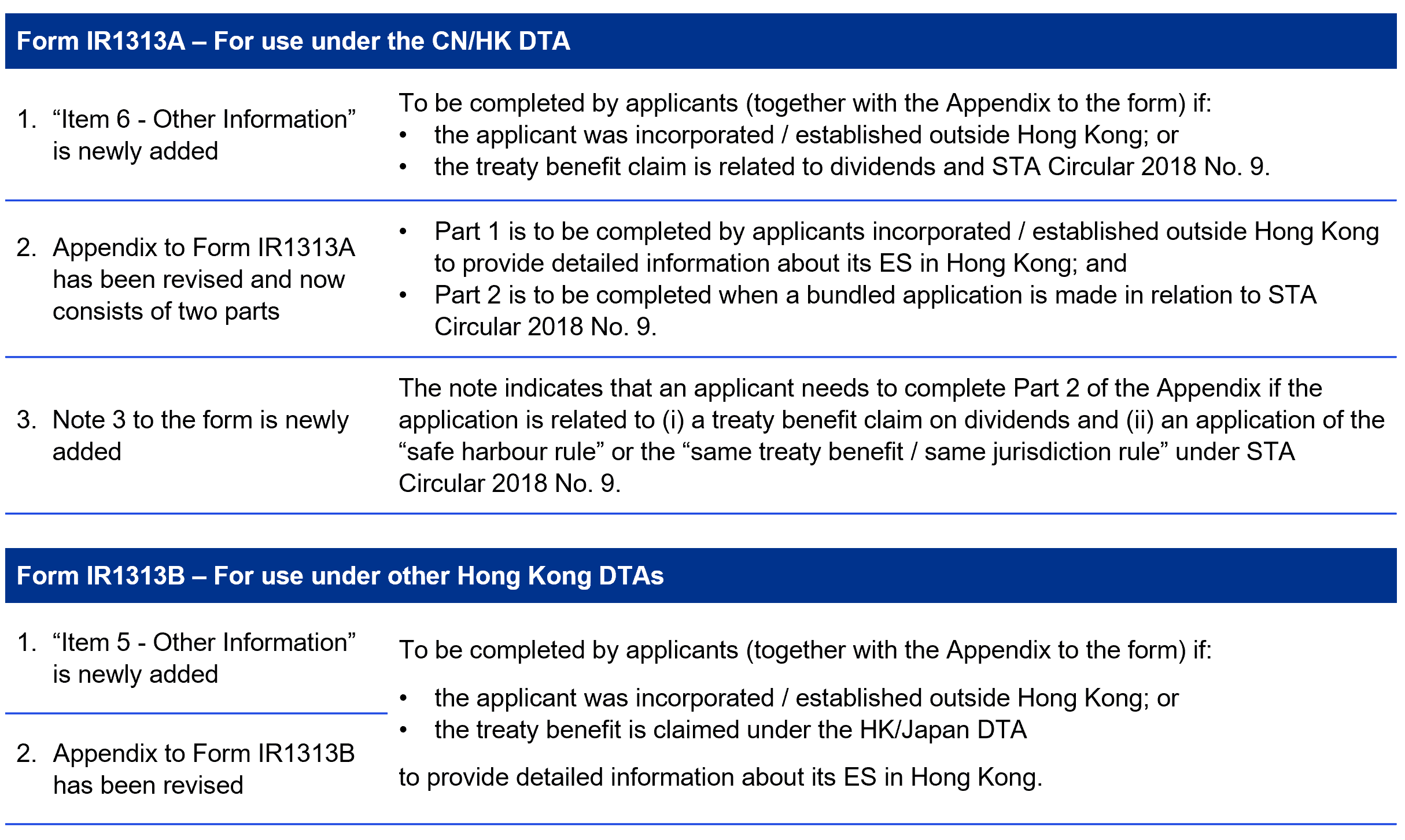We welcome the modified approach to the issuance of HK CoR adopted by the IRD and the revised HK CoR application forms. These changes imply that effective from 12 June 2023, under most of Hong Kong’s DTAs, a HK CoR applicant which is an entity incorporated or established in Hong Kong should be able to get a HK CoR on a straight-forward basis without being assessed on the amount of ES in Hong Kong or requested to provide detailed supporting information/documents regarding its establishment and/or business operations in Hong Kong.
However, business groups wishing to enjoy a treaty benefit under a Hong Kong DTA should note that obtaining a HK CoR does not necessarily mean the relevant DTA jurisdiction would agree to grant the treaty benefit to their Hong Kong resident entities. This is particularly true as the “principal purpose test” for preventing treaty abuse has either been included in an existing Hong Kong DTA during treaty negotiation or will be added to an existing Hong Kong DTA by means of the relevant provisions of the OECD’s Multilateral Instrument (MLI). Hong Kong resident entities would still need to have sufficient ES in Hong Kong to withstand any potential challenges on treaty abuse from the DTA jurisdiction from which a treaty benefit is sought.
In addition, with the foreign-sourced income exemption (FSIE) regime that became effective in Hong Kong from 1 January 2023, an entity that is within the scope of the FSIE regime needs to meet the specified ES requirements in Hong Kong if they receive foreign-sourced dividends, interest, royalties or equity disposal gains in Hong Kong (or fulfil the participation exemption conditions in cases of foreign-sourced dividends and equity disposal gains). In particular, in the case where a foreign-sourced equity disposal gain derived by a Hong Kong resident entity is tax exempt in the foreign source jurisdiction as a result of a treaty benefit under a Hong Kong DTA, the “15% subject-to-tax condition” under the participation exemption of the FSIE regime would not be met and the entity has to have adequate ES in Hong Kong to fulfil the ES requirement under the FSIE regime to enjoy a tax exemption of the disposal gain in Hong Kong.







